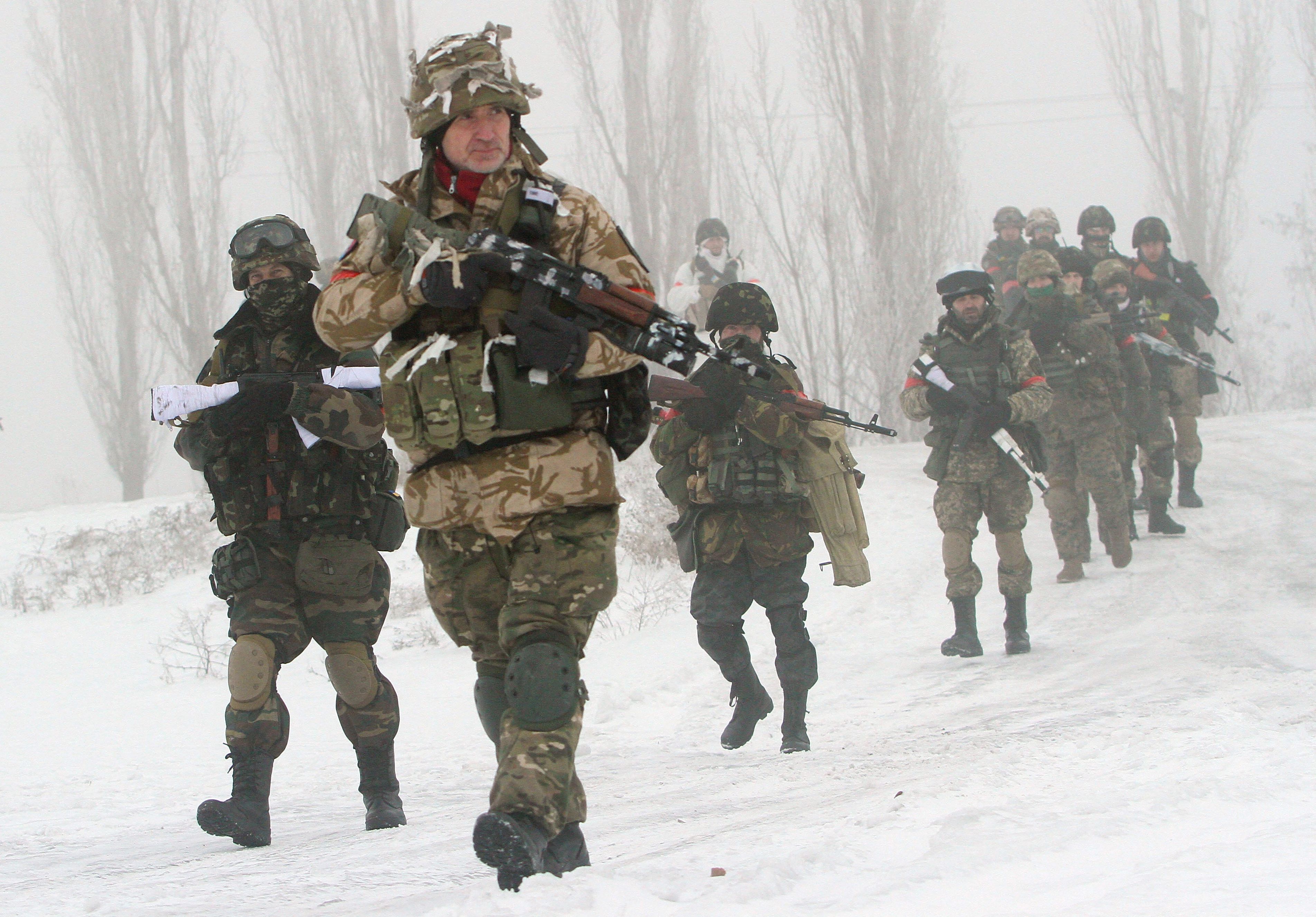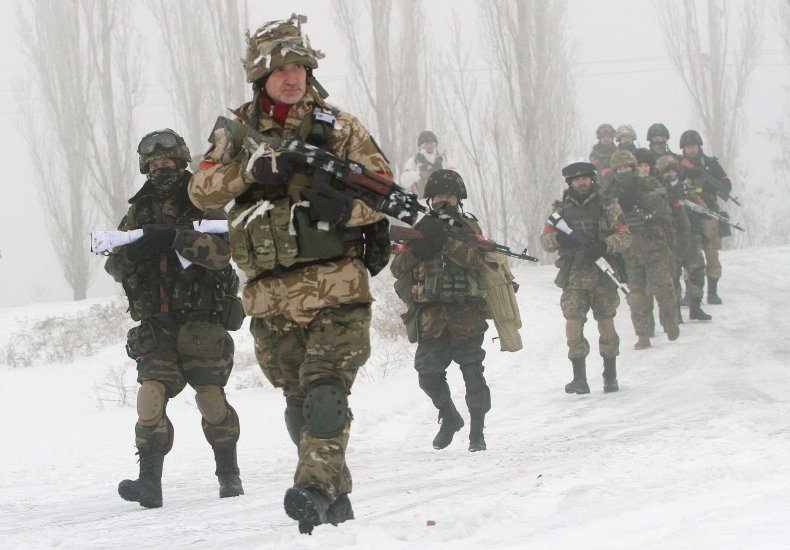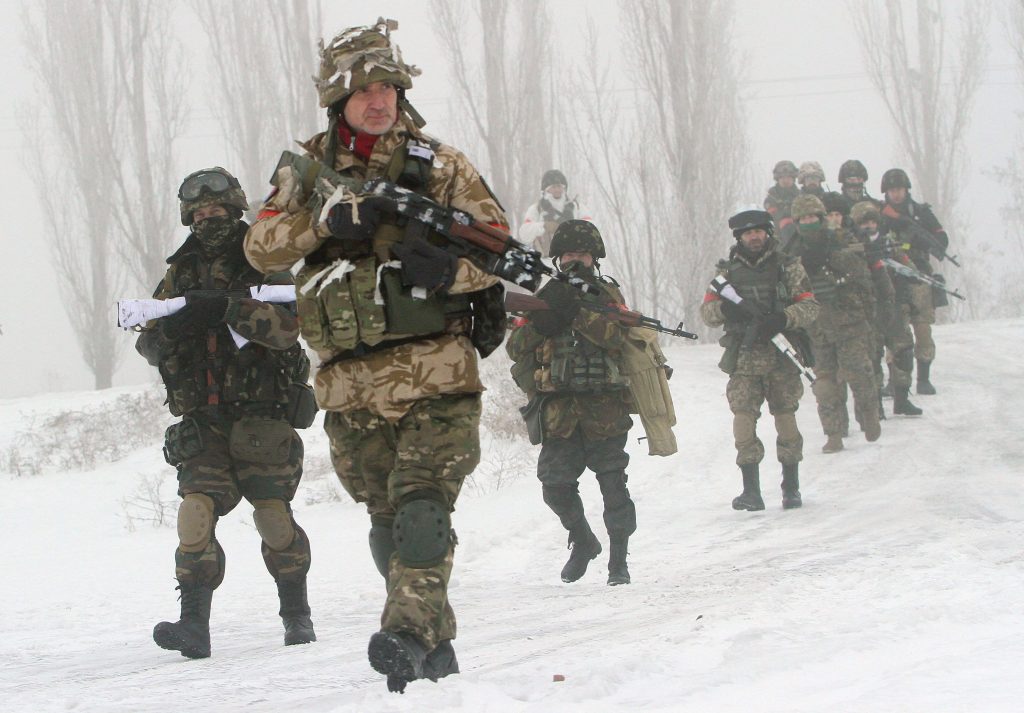
The U.S. Marine Corps issued an order through its Marine administrative message service stating that its personnel are prohibited from traveling to Ukraine and the neighboring countries of Belarus and Moldova. This appears to be the first order of its kind by a U.S. military branch amid Russia’s ongoing war against Ukraine.
Captain Ryan Bruce, a spokesperson for the Marine Corps, confirmed to Newsweek that the new order applies to all Marines, including its reservists. A later statement provided by Marine Corps Spokesperson Major Jim Stenger said the goal of this order was to communicate the State Department’s March 8 message directly to Marines.
“The purpose of this message was to put into a MARADMIN (a Marine administrative message) similar language that already existed elsewhere in the form of a State Department travel advisory and a message authored by the Commander of EUCOM,” Stenger told Newsweek.
“I know I check MARADMINs more frequently than State Department travel advisories,” he added, “so this was an attempt to communicate an important message to our Marines and Sailors directly.”

Photo by -/AFP via Getty Images
While the State Department issued a similar “do not travel” advisory on March 8, this appeal comes as a direct order to Marines during a time in which Kyiv officials have claimed tens of thousands of foreign fighters were traveling to Ukraine to aid in the fight against Russia.
The Ukrainian embassy in Washington, D.C., told Newsweek on Wednesday that more than 7,000 U.S. citizens have signed up to join Ukraine’s International Legion, noting that “not all of them are approved and not all of them are going to Ukraine.”
President Joe Biden has said any direct clashes between U.S. and Russian forces could lead to World War III, especially given mounting tensions between the White House and the Kremlin.
It is unknown if any Marines have joined the fight in Ukraine. However, a Pentagon spokesperson told Newsweek on Wednesday that, while “there is no simple answer” as to potential repercussions for U.S. military reservists, the Department of Homeland Security (DHS) was “looking at the implications and consequences that would be associated with reserve members fighting in a foreign country on behalf of another government.”
“As each member is an American citizen,” the Pentagon spokesperson added, “there are other considerations individuals must factor into a decision to fight in the Ukraine to include potential impacts to their citizenship, criminal or legal implications, etc.”
Even U.S. civilians faced serious risks.
A State Department spokesperson told Newsweek on Wednesday that any U.S. nationals captured by Russian forces may be treated as “mercenaries” rather than lawful combatants. This means they could be subject to potential criminal prosecution and may be at “heightened risk of mistreatment.”
Asked by Newsweek the following day what Moscow’s course of action would be should U.S. active duty service members or reservists be detained, Russian Foreign Ministry spokesperson Maria Zakharova said, “we do not accept any form of recruitment of mercenaries” from other nations to either the Ukrainian Armed Forces or “the ranks of nationalistic battalions.”
“We think that this work has been going on actively through the domestic missions of Ukraine abroad, as well as through the intelligence networks, first of all through the United States and other NATO countries, or NATO structures,” Zakharova said. “We do not accept that, but we have also warned the countries and the governments regarding the fact that no questions asked us regarding the fate of those people.”
